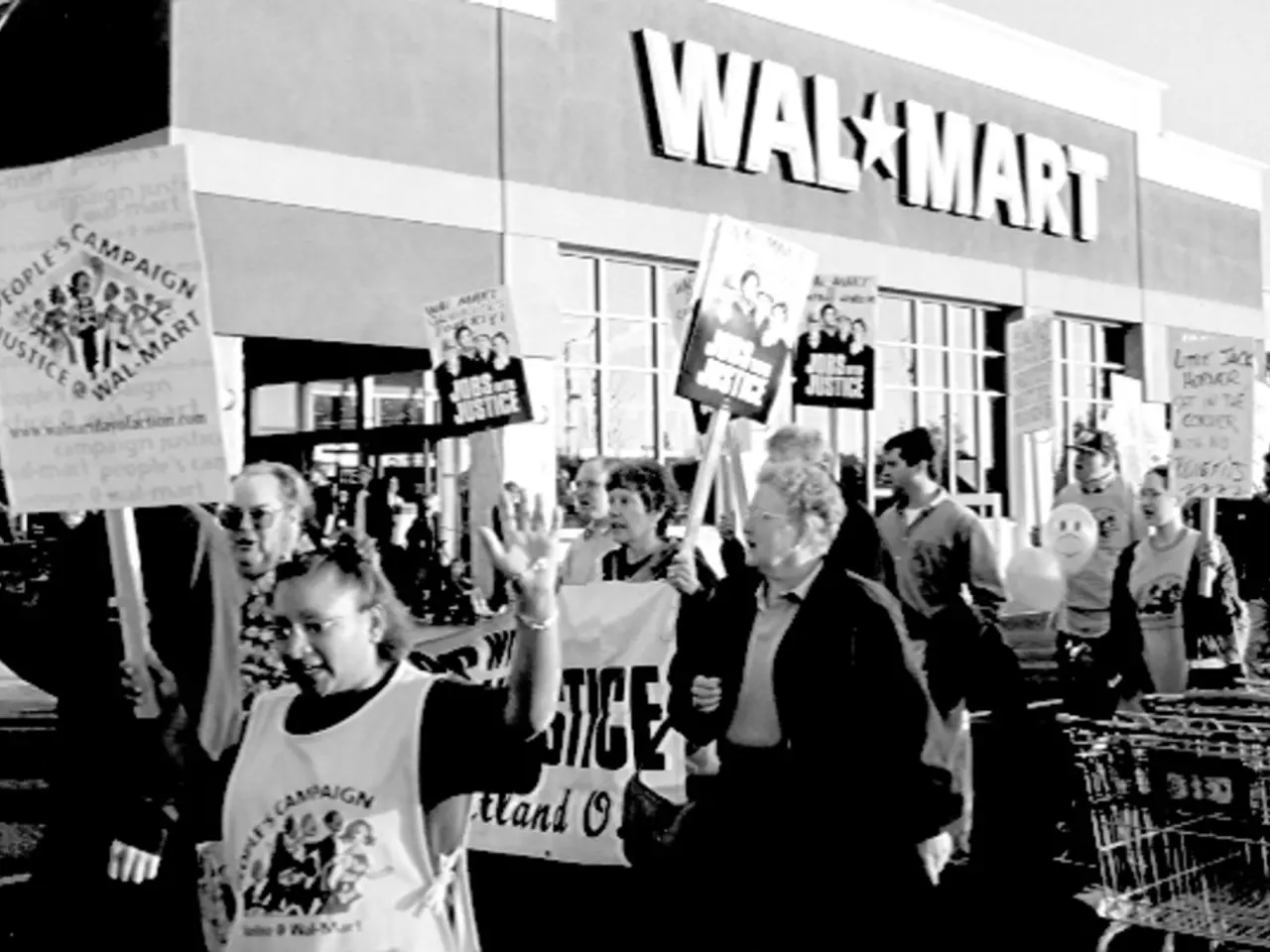Increased calls for avoiding American products emerge in India following Trump's announced tariffs
In recent times, US-based multinationals like McDonald's, Coca-Cola, Amazon, and Apple are facing boycott calls in India. This shift is a response to the anti-American sentiment triggered by the US imposing a 50% tariff on Indian goods.
India, the world's most populous nation, is a key market for these American brands, which have rapidly expanded to target affluent consumers. However, the tariff escalation, introduced by President Donald Trump in 2025, is seen in India as protectionist and punitive, prompting a nationalist backlash.
The tariff hike severely impacts Indian exports to the US, harming India's economy and straining diplomatic ties between New Delhi and Washington. In retaliation and as a form of patriotic duty, political groups linked to Prime Minister Narendra Modi's party, such as the Swadeshi Jagran Manch (SJM), have called for boycotts. These groups are promoting local alternatives over American goods, with social media campaigns and public rallies amplifying the calls.
The SJM, linked to Modi's Bharatiya Janata Party, has taken out public rallies across India urging people to boycott American brands. They have also circulated a WhatsApp list of Indian brand alternatives to American consumer goods. One of their campaigns is a graphic titled "Boycott foreign food chains," which includes logos of McDonald's and other restaurant brands.
Prime Minister Modi himself has publicly urged prioritizing Indian industry and self-reliance, reinforcing nationalism and the "Vocal for Local" initiative that emphasizes strengthening domestic products to reduce dependence on foreign imports. Indian business leaders and industry veterans have supported the movement, encouraging the elevation of Indian startups and products to global prominence.
Though the immediate sales impact on US multinationals isn't clear, the growing public sentiment and organized actions pose longer-term risks to these companies' market positions in India. One of the world's largest and fastest-growing consumer markets, India offers significant opportunities for growth. However, the boycott calls indicate that US-based multinationals may need to reconsider their strategies to maintain their market positions in the face of growing nationalism and self-reliance initiatives.
Indian retail companies are giving foreign brands stiff competition in the domestic market, but going global has been a challenge for Indian brands. Many Indian consumers remain infatuated with international labels, which are often seen as symbols of moving up in life. However, the boycott calls suggest a shift in consumer preferences towards locally produced goods.
The boycott is a response to US tariffs, which have led to anti-American sentiment among some business executives and supporters of Prime Minister Narendra Modi. Notably, Domino's has more restaurants in India than any other brand, making it a significant target for the boycott calls.
Ashwani MaHajjan, the group's co-convenor, believes that the boycott of American brands is a call for nationalism and patriotism. Manish Chowdhary, co-founder of India's Wow Skin Science, has called for support for local Indian products and startups to make "Made in India" a "global obsession."
In summary, the boycott calls arise from a combination of economic retaliation, nationalist political mobilization, and a push for greater Indian self-reliance in response to US tariff policies perceived as unfair and damaging to Indian interests. The boycott calls highlight the growing importance of self-reliance and nationalism in India's economic policies and consumer preferences.
- The boycott of American brands, such as McDonald's, Coca-Cola, Amazon, and Apple, in India is a response to the anti-American sentiment triggered by the US imposing a 50% tariff on Indian goods.
- Indian retail companies are giving foreign brands stiff competition in the domestic market, but going global has been a challenge for Indian brands, making them potential targets for boycott calls.
- Business leaders and industry veterans in India have supported the movement to boycott American brands as a form of patriotic duty, encouraging consumers to prioritize Indian products and startups.
- The boycott calls against American brands like Domino's suggest a shift in consumer preferences towards locally produced goods, reflecting growing nationalism and self-reliance initiatives in India.
- The boycott calls and public sentiment indicate that US-based multinationals may need to reconsider their strategies to maintain their market positions in India, as the boycott poses longer-term risks to their positions in the world's most populous nation and one of the fastest-growing consumer markets.




